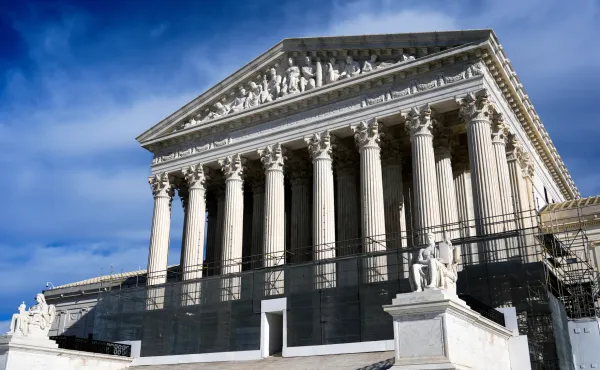Fathering Love: Gestures or Substance
Fatherhood isn’t proven by grand gestures, but by daily faithfulness. We father as we have been fathered—and that means choosing to be fathered by God. Love must be expressed, not just intended. Let this be the day you show what you’ve held back.

A Family Bearing the Father's Name
I'd like to begin by reading the words of Paul from the third chapter of his epistle to the Ephesians.
“To me, the very least of all the saints, this grace was given—to preach to the Gentiles the unfathomable riches of Christ and to bring to light the administration of the mystery hidden for ages in God, who created all things, so that the manifold wisdom of God might now be made known through the church to the rulers and authorities in the heavenly realms.” (Eph. 3:8–10)
This is Paul’s reason for preaching. This is heaven’s reason for the church. God intends to unveil His wisdom—not just to the world, but to principalities and powers—through a people who have come to understand and embody His love.
It’s not about position or performance. It’s about love. Paul continues, “For this reason, I bow my knees before the Father, from whom every family in heaven and on earth derives its name” (v. 14).
Let the record reflect: there is only one great family—because there is only one Father. And this family is meant to put God's love on display. But that love doesn’t begin with us—it begins in Him. So Paul prays, not for outward success, but that we would be “strengthened with power through His Spirit in the inner man.”
This is the source of real transformation. When we bow to the Fatherhood that governs the whole family, we receive an inner strength, a rooted power, a love that begins to dwell within us. Christ takes up residence in our hearts—not through our works, but through faith. And we become, as Paul says, “rooted and grounded in love.”
Together, We Begin to Comprehend
But how do we come to grasp this kind of love? Paul is clear:
Not through superior intellect.
Not through personal insight.
But—“together with all the saints.”
There is something about the love of God that surpasses knowledge. It can’t be grasped alone. It can’t be dissected or defined like a doctrine. You must live it. Receive it. And you must do it in the context of community.
Paul prays that together, we would “comprehend the breadth and length and height and depth—and to know the love of Christ which surpasses knowledge, that you may be filled with all the fullness of God.”
This isn’t comprehension in the academic sense. It’s not theory. It’s incarnation. To know this love is to receive it. And to receive it is to receive God.
Knowledge has limits. It is a hand grasp too small to contain love. Love breaks the frame. It exceeds the box. It spills over every mental category.
This love is so vast—so high, so deep, so wide—that no one or two people contain it. It’s like trying to wrap six arms around a redwood. You need more arms. More hearts. Only together can we begin to comprehend the incomprehensible.
And when we do? When we come into this kind of unity, this kind of love, this kind of indwelling power?
That’s when God gets the glory.
That’s when the church becomes His dwelling.
That’s when the rulers and authorities in the heavenly places take notice.
World without End: The Glory of Generational Love
Paul closes this prayer with a doxology:
“To Him who is able to do exceedingly abundantly beyond all that we ask or think, according to the power that works within us—to Him be glory in the church and in Christ Jesus to all generations, world without end” (Eph. 3:20–21).
Some translations say “forever and ever,” but the King James gets it right: “world without end.”Why? Because Paul isn’t just speaking of eternity in time—he’s speaking of continuity through generations.
This is the generation Jesus spoke of when He said, “This generation will not pass away until you see the Son of Man coming.” It’s not a thirty-year span. It’s a lineage. A chain. One generation holding hands with another. One faith-filled family, stretching from heaven to earth and back again. A generation that doesn't break—because it loves.
That’s the church God gets glory in. That’s the church He fills with His fullness.
And that is what Father’s Day is truly about.
Not just cards, not just compliments, not just memories—but the holy consideration that through fatherhood, love at last finds a place to flourish. A place to be planted. A place to grow.
Because through our love for one another, Jesus said, the world will know—and the world will see—that God took on flesh. And that flesh, in corporate form, is still being filled with all the fullness of God.
That’s the mystery.
And that mystery is made known—through love.
Not a Title but a Life
Fatherhood is not a title; it’s a calling. Not a gesture, but a life. Not a sentiment buried in the heart, but a love made visible—in skin, tone, patience, and presence. And perhaps the greatest danger we face today is this: we’ve begun to equate love with intention instead of expression.
On Father’s Day, we receive kind words, cards, warm smiles. But for many, those gestures carry a sting. Not because they’re false, but because they expose the gap between who we long to be and who we are. Yet that ache is not condemnation—it’s invitation. There’s still time.
And if we want to live worthy of our calling, we too must bow. We must learn again what it means to be fathered by God, so we can father others with His love.
God’s love is not revealed in grand gestures. It is revealed in daily faithfulness. “As the Father has loved Me,” Jesus said, “so I have loved you. Abide in My love” (John 15:9). That’s the pattern. That’s the power. Not independent strength, but rooted, abiding love.
The truth is both sobering and hopeful: you will father as you have been fathered.
For some, that’s a tragedy. For others, a promise. Many men hide behind their upbringing. “My dad never showed affection,” they say. That may explain the wound, but it cannot excuse the withholding. You are not disqualified from giving love just because you never received it. You can still be fathered by God. Today. Right now. No matter your past. No matter your pain.
It’s not too late.
The Proof of Discipleship Is Love Made Visible
Jesus didn’t leave room for interpretation. He said, “My Father is glorified by this: that you bear much fruit, and so prove to be My disciples” (John 15:8). The very next verse defines that fruit: “Just as the Father has loved Me, I have also loved you. Abide in My love” (John 15:9).
This is the whole thing. The proof of discipleship is love. Not the idea of love, but the action. Not just the theology of love, but its incarnation. A love that others can feel. Taste. Trust. A love rooted not in gesture but in presence. In sacrifice. In daily sowing.
We will father as we have been fathered. That is both our challenge and our hope. It is a cycle we must either surrender to or interrupt. Because for every man who says, “I love like I was loved,” there must rise another who says, “I love differently, because Christ has loved me differently.”
It is a tragedy when men cling to broken examples as justification for repeating the cycle. But it is a promise when men submit to the fathering of God and pass on what they’ve received from Him.
Being Fathered as a Grown Man
Paul wrote, “You may have ten thousand instructors in Christ, but you do not have many fathers” (1 Cor. 4:15). He wasn’t talking about biological lineage—he was talking about spiritual transformation. Fathering isn’t biology; it’s discipleship. It’s not accidental; it’s intentional. It’s not inherited; it’s chosen.
My own father grew up with a dad who wasn’t a believer, who struggled to express affection, and who died by suicide during one of the most pivotal seasons of my dad’s life. And yet my father honored him, spoke of him with fondness, and cherished even the small gestures—like the time he showed up at school with a fishing hat and told the teacher he was taking him “to the dentist.”
But my father didn’t stop with honoring what was good. He knew he needed more. He knew he needed to be fathered. So he wrote down the names and virtues of six men—men he looked to for their character, for their excellence, for their ministry. He said, “These are the fathers I have chosen.” And that decision changed everything.
You cannot father well until you allow yourself to be fathered. And it’s not too late. It never is.
Love Is Not Innate—It’s Discipled
Too many men try to prove their love by instinct—as if love were something we’re born knowing how to give. But love is not innate. It is not your personal virtue. It is a fruit of the Spirit, and like every fruit, it must be planted, watered, trained, and pruned.
We get prideful. We want to believe love originates in us. And so we resist correction. We hide our weakness. We reject help. But love is not your product. It’s not evidence of your goodness. It’s evidence of God’s grace.
The love of God is shed abroad in our hearts by the Holy Spirit (Rom. 5:5), not by our good intentions. But even Spirit-given love needs stewardship. Even a seed from God needs soil, pruning, and care. Jesus said, “Every branch in Me that bears fruit, My Father prunes so it may bear more” (John 15:2).
You’re never going to escape the spiral of disappointment and relational lack until you humble yourself and acknowledge: love is not yours. It is His. And you are its steward.
Love Is Not in the Grand Gesture
We are a people obsessed with gestures—especially on holidays like Father’s Day. We want the card, the big moment, the moving speech. But gestures can’t replace faithfulness. And too often, that’s what they attempt to do.
We become symbolic Christians. Gesture-clowns. Acting the part, capitalizing on emotionally charged moments—while neglecting the daily garden of our children’s souls.
We want to be Cassie Bernall, the girl who famously answered, “Yes,” before she was shot at Columbine. We imagine ourselves as the one who would stand for Christ in that kind of moment. Perhaps we would. But would we show up every day, quietly and faithfully, for 18 years in a row? Would we endure without applause?
The truth is, most Christians would say yes in the moment of martyrdom. But too many say no in the tedium of perseverance.
Faithful fathering isn’t forged in epic moments. It’s forged in constancy. The real heroism is to keep showing up, to keep giving, to keep loving—without recognition, without the grand gesture, without the Instagram post.
The Real Barrier: Fear and Pride
So why don’t we give love? Why do we hold back?
Not because we hate. Not because we’re cold. But because we’re scared. We’re scared of vulnerability. Scared of rejection. Scared of appearing weak. Love makes us feel foolish. So we clamp the lid down and call it masculinity.
C.S. Lewis put it perfectly:
“There is no safe investment. To love at all is to be vulnerable. Love anything, and your heart will certainly be wrung and possibly be broken. If you want to make sure of keeping it intact, you must give your heart to no one, not even to an animal. Wrap it carefully round with hobbies and little luxuries; avoid all entanglements; lock it up safe in the casket or coffin of your selfishness. But in that casket – safe, dark, motionless, airless – it will change. It will not be broken; it will become unbreakable, impenetrable, irredeemable. The alternative to tragedy, or at least to the risk of tragedy, is damnation. The only place outside Heaven where you can be perfectly safe from all the dangers and perturbations of love is Hell.”
1
That is the trade-off. If you hide love to protect it, you kill it.
It’s not weakness to express love. It’s courage. And if you feel yourself clamping down, that’s your moment of calling. That’s where you choose: Will I be safe? Or will I be Christlike?
The Tragedy of Withheld Love
There is something sacred about love that makes us hesitate to give it. We instinctively know it’s powerful—too powerful to treat lightly. And so we wait, we hold back, afraid that what we offer will be scorned, misunderstood, or ignored.
We picture the moment when we finally open our heart, only to hear the words: “That’s not what I meant at all.” And so we measure out our affections in teaspoons, as T. S. Eliot put it. We curate our emotions. We calculate our risks. We choose safety over sincerity.
But here’s the sobering truth: the greatest tragedy is not unrequited love. It is unexpressed love.
You think you’re protecting your heart. But what you’re actually doing is guaranteeing regret. Because no one will ever be grateful for the love you almost gave.
People don’t stay loyal to what you hid. They’re not anchored to what you intended. People are loyal to love they can feel. And they will never forget the love that showed up in your tone, your skin, your hands, your presence.
Fatherhood Is the Most Important Calling of Your Life
You may be chasing a mission, a legacy, a crown. You may be trying to redeem your past through a thousand efforts and exploits. But here’s the mission you’ve been looking for: become a faithful father.
That is your calling.
Everything else pales in comparison. Every accomplishment, every applause, every talent, every triumph—dust in the wind compared to this: that your child could stand over your grave and say,
“Jesus, help me be a father like mine.”
That is the fruit that remains. And it doesn’t depend on being perfect. It depends on being present. On being vulnerable. On being willing to start now—even if you feel it’s too late.
It isn’t.
I watched my grandfather, in the final year of his life, make a decision to enter deeper into the life and commitment of love. He said, “I can’t do much. I’m mostly trouble. I’m not helpful anymore. And yet they keep serving me. They just keep loving me.” And in that moment, something in him softened. “I want to be part of something that loves like that,” he said.
It’s never too late.
You don’t age out of love. You only ever opt out.
The Crown of Courage: Showing Love Boldly
If love is the greatest virtue, then cowardice in love is the greatest vice. And the only cure is to take the lid off. You must show love. Not think it. Not plan it. Show it.
Affection is not just for babies. It’s not weakness. It’s not unmanly. It’s how God loves. He picks us up. He kisses our foreheads. He wipes our tears. That’s not metaphor—that’s Scripture.
You may say, “That’s not my culture.” Then repent. Choose the culture of Christ.
You may say, “That’s not my personality.” Then receive the Spirit who gives you a new nature.
Love is not complete without affection. You can have affection without love—but you cannot have love without affection. Love is not proven in words alone. It is proven in actions. In nearness. In warmth. In consistency. In faithfulness.
Let your child be so immersed in your love that to walk away from it would feel like death.
Let Them Say It at Your Grave
Take a moment and picture it: your funeral. A hole in the ground. Your child standing over it.
What will they say?
“Dad worked hard”?
Or: “My father loved me fiercely. And I never doubted it.”
Let that be the goal. Let that be the legacy.
Not the success, not the stuff, not the public praise—but this: that your children and spiritual sons and daughters would say, “Jesus, help me love like that.”
That is the glory that lasts from generation to generation. That is the crown of fatherhood.
The Final Measure: What They Feel When You're Gone
The measure of a father is not what he feels, but what he gives. Not what he says in the moment, but what they remember in his absence. Do they feel your love when you’re no longer in the room?
And yet, we still hesitate.
We tell ourselves love is best saved until we’re sure it’ll be received rightly. We want to give the perfect expression, the flawless gesture. But in waiting for the ideal moment, we often miss the only moment we’re guaranteed: now.
It’s not the polished speech that will change your child’s life. It’s not the perfectly timed gift. It’s the faithful affection. The warmth of your tone. The steady presence. The arms that hug even when you don’t have the words.
They don’t need your perfection. They need your effort.
Love You Never Show
Oh, I’m hurting for a friend today,
And I would not judge the road he takes.
But I see him walk a painful way—
Of love that breaks in silent ache.}
Why, oh, why, does love remain
For some—and for others, it falls apart?
Why does fondness brim like rain,
Yet never soak the other’s heart?
How can I say it without it hurting?
How can I help you learn to see—
You must invest all the loving,
Give and give—like sun on seed.
Give the kind of love they feel
Would make their leaving feel like death—
Not soft or small, but fierce and real,
A love with roots, and depth, and breadth.
Love is the fountain of life we crave,
Yet who walks off gasping when you're gone?
Who feels, in parting, a kind of grave,
As if the soul can’t carry on?
Oh, that’s how much we’ve got to give—
Not less, not slight, not kept within.
For love that stays must learn to live
Not trapped in heart, but shown in skin.
It’s not the thought that counts at last—
Not feelings that you never said,
Not kindness buried in the past,
Or silent care that’s left for dead.
No—it’s showing and acting and speaking of love,
That moves it out of your aching chest,
And into the soul of the one you love,
Where it roots and rests and manifests.
People are loyal to love they can feel—
They must know it, hear it, believe it, breathe it.
They won’t stay loyal to what was concealed—
To the love you held back . . . and never revealed.
Love Is Its Own Reward
Maybe you’re still scared. Maybe the last time you gave love, it wasn’t returned. Maybe your affections were misread. Maybe your heart got broken. And so now you think: Never again.
But that’s not what Jesus did.
He gave, knowing we wouldn’t understand. He gave, knowing we might reject it. He gave anyway. Because love is not transactional. It is not offered in hopes of return—it is given as repayment of what we’ve already received.
“God demonstrated His love for us in this: while we were still sinners, Christ died for us” (Rom. 5:8).
We’re not loving to get something back. We’re loving because we’ve already been given everything.
Happy Father's Day—To All in the Fight
So let this be your recommitment. Not to a feeling. But to a practice. To a faithfulness. To a vulnerability that mirrors Christ.
Let this be the day you unscrew the lid. The day you speak what you’ve held back. The day you show what you’ve felt all along.
Let it be said of you what I told a guest about my own dad:
“He spent his life building a safe place for love.”
And if that’s not true of you yet—make it true now.
Happy Father’s Day to every man in the struggle.
To every dad who hasn’t arrived but is determined to press in.
To every heart that wants to do better.
To everyone who knows that what they have was given from above.
Happy Father’s Day—to all of us recommitting ourselves to the one thing that never fails.
- Lewis, Clive Staples. The four loves. United Kingdom: Harcourt Brace Jovanovich, 1991. Pg 121





